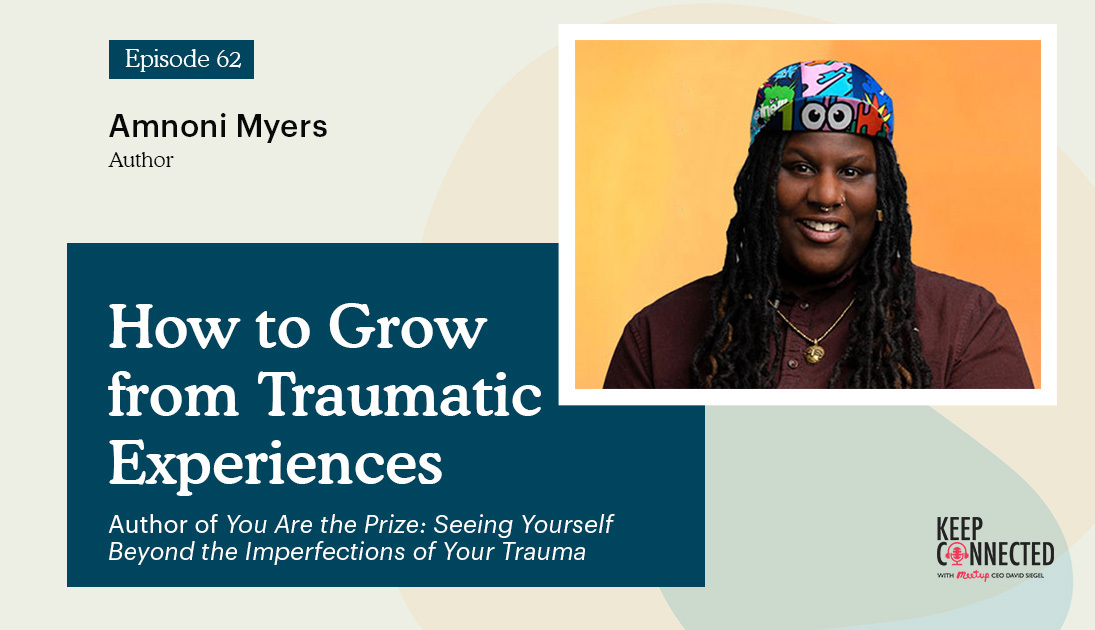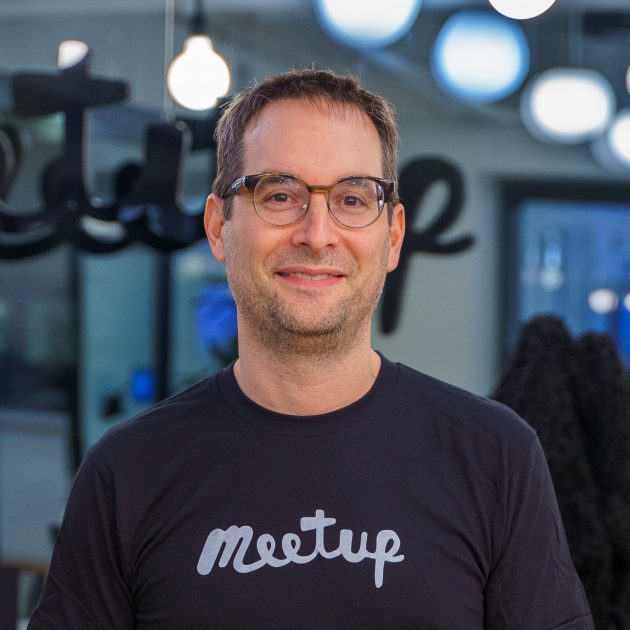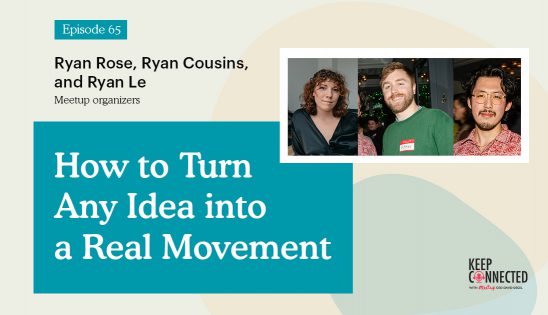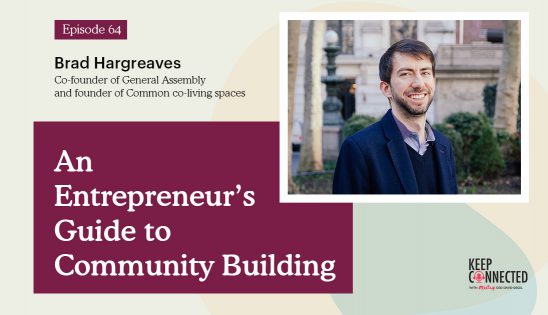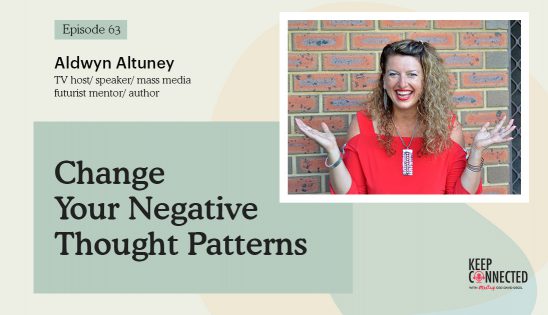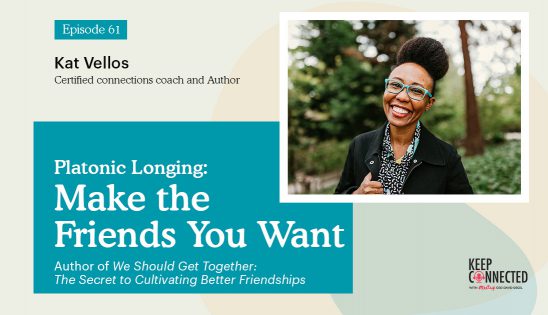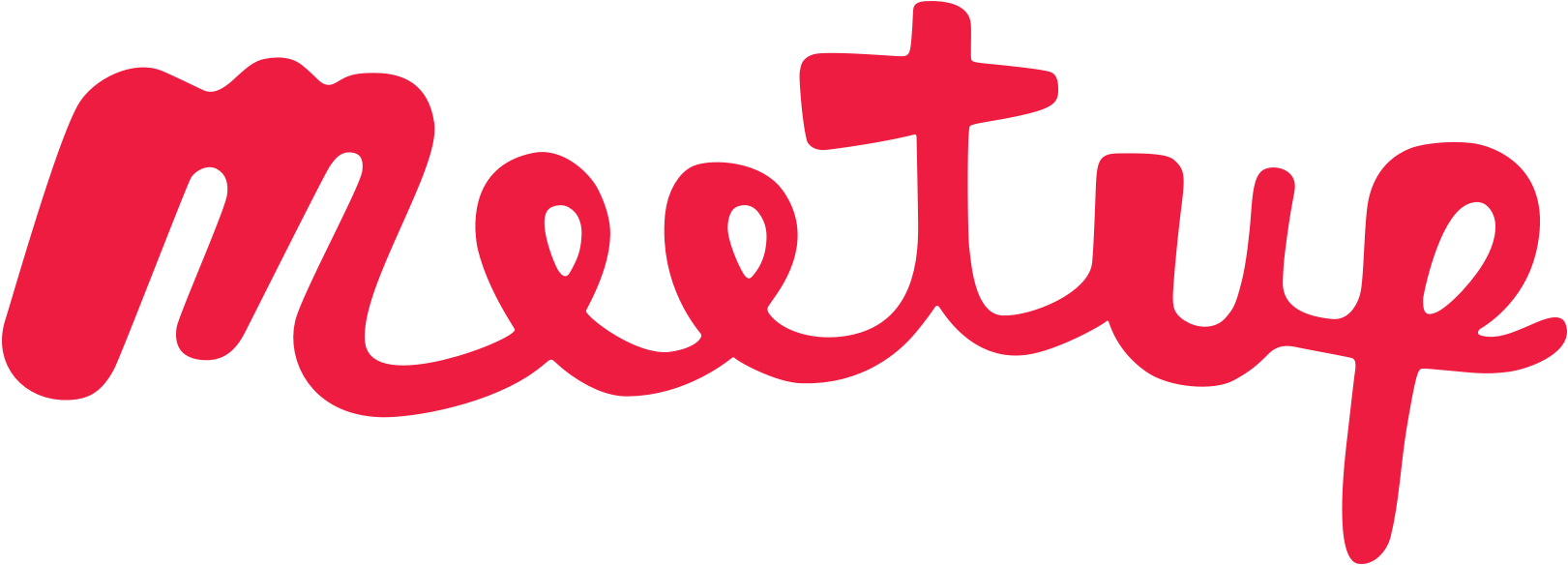Amnoni Myers has persevered through addiction, abuse, abandonment, homelessness, and the many difficulties of the foster care system to become an author and nationally recognized child welfare advocate. Her success story (recounted in the new memoir You Are The Prize) is not only a tale of resilience and self-discovery but a brilliant guide for anyone struggling to thrive after a difficult past. Amnoni and David sit down to discuss how to be proactive in your own healing, the truth about safe spaces and why they matter, interdependence as a core value, and so much more.
Show Notes
In this episode, we are talking to Amnoni Myers. If you enjoy being motivated, you are going to enjoy this episode. This is someone who went from homelessness to providing legislation around foster care to Congress, who has written an incredible book and who is an exceptional human being. Happy reading. Happy motivating.
—
Amnoni, welcome to the show.
Thank you so much. It was good to see you.
I feel deeply privileged to chat with you. The reason is that when people have such a challenging childhood, it is amazing to me when people are able to become the shining lights that you are. Your community-building, bestselling book and day-to-day actions are quite remarkable. I’m eager for people to read your story because it is a special story that motivates me and will motivate others. Let’s talk about your early days, your childhood, the foster care system, your challenges and the steps you took to overcome them. Let’s go back and we will bring ourselves forward to Meetup, Shut Up & Write and all the other good stuff we are going to be talking about.
Thank you so much for having me on the show. I feel extremely privileged to be here. It is something that feels surreal. I’m thankful. As I look back, it is important to always think about where I began because it has given me an opportunity to finally see that the things that I have experienced, in a way, had a meaning.
I grew up in the foster care system. Before that, I was born with drugs in my system. I was born heavily addicted to drugs. I was left in the hospital. From there, my great-aunt heard about my siblings and me. She ended up taking us in. I lived with her for the first ten years of my life. I was introduced to my mom at the age of ten. I was living with her and my siblings for a few years. It was during that experience that I experienced abuse and emotional unsafety. I felt like I dealt with a lot of confidence issues, issues around rejection and abandonment.
That is a complicated time for every person, a twelve-year-old young lady trying to figure out things in life.
At the age of twelve is when I ended up going into the foster care system. It wasn’t that I got disconnected from my biological mother and family members but I was also separated from my siblings. For anybody out there that has siblings, that is hard. People who have been your protective factors and have been your best friends. One of the things that I shared when I was in Atlanta was that my siblings are where I first found and experienced love. To have that ripped away from me at the age of twelve and not even knowing why you are being taken away is hard.
Amnoni, were these older or younger siblings?
I was in the middle. I had an older sibling and a younger sibling. It was my little sister that got separated from my brother and I. When that happened, I ended up going into care. From there, I ended up getting separated from my brother because I ended up moving around. Those experiences, at such a young age, you don’t recognize how much that taps into your experience around safety, trust and stability.
When it was time for me to age out, which was at the age of eighteen, you were either leaving foster care, reunited or adopted. None of those things happened to me. I abruptly aged out of care. My social worker told me my foster mother was no longer being paid to have me there. When I went back home to pack up my belongings, my things were already packed. They were waiting for me on the porch in black trash bags.
That is also a level of dignity and inhumane that happens. That speaks to the amount of instability I had growing up throughout my time. When you go into foster care, you are expected to feel safe, be safe and heal but all of those things were re-triggered. Healing, for me, was more of a lifelong pattern and experience.
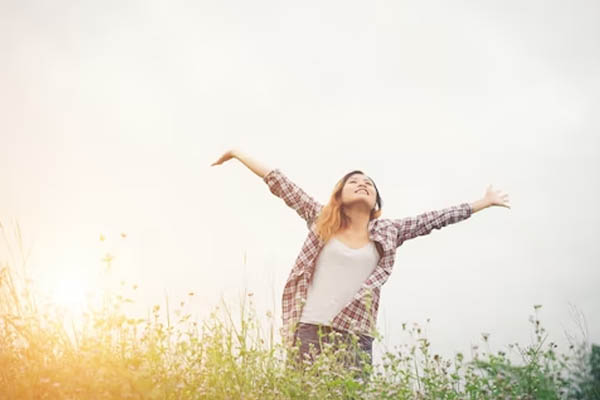
You were incredibly proactive in your healing. It is not a “lucky thing.” Everyone has some lucky things happen to them throughout life but you made it happen. Share with us a little bit. You are eighteen. What did you do? How did you take ownership? It feels like you took ownership of your healing. That is incredibly brave and hard to do. Few people are able to do it.
I was determined from a young age. I knew I did not want to experience the things my parents had experienced or the things they had gone through. I knew I wanted to be different and at least have a shot. I wasn’t sure how I was going to get there. During my senior year of high school, I got caught drawing graffiti on the wall. I was not on track to graduate and even go to college. It was during that experience that a new principal found out about me and said, “What do you like to do besides drawing graffiti on the wall?” It was at that moment that I was introduced to other options I had no idea about.
The power of that one person. That is beautiful. You went off to college. Talk about that.
I went off to college and was determined to graduate. I had roadblocks while I was in college. It was there that I ended up becoming homeless during my sophomore year. I had signed up for a mentorship program. Part of the holidays is that young people in foster care can’t stay on campus. I had nowhere to go. My school made an exception for me to be able to go with my resident director to her family’s house. It was during that experience that I got sent to a conference. I wouldn’t spend a Christmas alone.
I met another mentor who became a mentor who told me about an internship program for young people who were in the foster care system on Capitol Hill. She was like, “You should go and check it out. You would be a perfect candidate.” I was experiencing homelessness so I was like, “I need to figure out what I’m going to do next summer.” I ended up applying sheepishly and I was like, “I’m going to try it.” I got accepted.
It was the first time in my life that I realized that my story could have meaning. I never was in the position to share all of the things that happened and I experienced care in a way that could help change the policy lens. I wrote a policy report. The policy report was focused on how you train foster parents in trauma-informed care. That way, young people age out of care or when they leave their care, are not being dually traumatized or harmed. I got to present that report to both members of Congress in the White House Domestic Policy Council and one of the senators took it up for draft legislation.
You had been homeless a year prior.
It was like a full circle. The crazy part was I was upset and annoyed being at that conference because I was like, “I want to be with a family. I don’t want to be here.” Being there is what led me to that opportunity.
Man plans and God laughs. You don’t know what amazing things can happen but you made them happen. There’s something about your resilience that is truly remarkable. What is it? Is it your personality? Did you have to work hard at it or it comes naturally?
It is a mixture of all of those things. One of the things that I learned early was that I didn’t have to allow my path to dictate my future. I was raised by a great-aunt who spoke good life into me and shared with me the importance of being a leader and all of those different things. When you spend a lot of time in darkness, you are always inching to see the light. I spent so much time in darkness so I was determined to see what was on the other side of darkness. That is light.
I’m thankful that I have had people in my path, that has been placed in my path, strangers that have become family, and that have said, “I see something inside of you that I couldn’t always see.” I believe that we are all born and great. The problem is that a lot of us are not able to see our greatness. It takes people and the community to be able to do that for us.
It seems to me, in everything you shared, the power of mentors for you. You are also mentoring other people and you continue to be mentored by people and mentor other people. That is a theme that has woven through a lot of your experiences. Let’s talk about safe spaces because you referenced that while we were talking originally. Share with us your thoughts about the challenges of safe spaces. How do you create a safe space? Why are safe spaces important? It is something you are passionate about.
Safe space is the key for people to not only experience vulnerability and safety but it is in those spaces that they are able to transform. I find that the challenge with safe spaces is that sometimes people don’t always understand why they are necessary and why they are important. If they feel left out of that, they will feel no one else can experience that. That is not true. Everyone deserves to have a safe space. How do you create that safe space? It is by being able to come together to find that objective meaning as to why we are here, why we are supporting each other and why it is important.
The beauty that I have been able to experience has been that even in the spaces that haven’t always been safe or have felt safe, I have been able to create that safe space with other people and communities. Being able to recognize the importance that people deserve to be able to be seen even in safety and security is so important. I’m here for safe spaces, David.
If you were to give one message to our thousands of readers about what they can do to create a safe space, what one message would you possibly give them?
The one message I would give people who are thinking about creating safe spaces is to ask why they are creating that safe spaces. Your why is inclusive as to how you are going to approach that. When you find yourself not being able to do that, you will go back to, “Why I created this safe space? Why is this important?”
It is important to think about yourself. All of us need safety, someone to talk to and a shoulder to lean on. Even if the safe space is a space where there is silence, to know that other people are in that space with you to me speaks volumes because here in our society, it has been difficult to find and create safety. Safety is what transforms the work, world and hearts. It also transforms and transcends love. That would be my message to people for creating a safe space.
Safety is what transforms the work, world, and hearts. It also transforms and transcends love.
One thing you mentioned that I want to need to work on more is that it is okay to have or even prefer to have silence in a safe space. I will speak for myself. There are many executives and solution-oriented type people. Sometimes the best thing is not to provide the solution but to have silence and listen. That is oftentimes the thing that people need the most. I’m glad you hit on that.
I’m glad that, as a leader, you were able to even speak to that. That is something that you want to be more aware of. The reality of it is we all want to help and be supportive. What I’m realizing is that sometimes in silence is where you are able to find what you need the most. Knowing that you can look across the room and somebody else is also doing that same thing makes it easier to know that even though you are experiencing silence, you are not experiencing the suffering alone. You have somebody that is there in the community with you. We can feel the energy. That has been helpful to know.
It is harder to feel energy by Zoom but we can still feel Zoom energy. In-person energy is something critical and important. You mentioned safe spaces. Meetup has been that to some extent. Your story on Meetup was motivational to me. I want to share that with you in terms of helping, writing the book and creating a support system coming out. Let’s talk maybe a little bit about your experience with Meetup, whether you want to talk broadly or hit on the group, Shut Up & Write. However if you want to take it is great.
When I first met Meetup, I felt like I was first meeting myself because I was in the process of coming out. I had moved to Oakland. I came to San Francisco a couple of years prior to that. When I came to San Francisco, it was my first time experiencing the queer community in ways I had never experienced it.
Specifically, accepted and embraced or something different?
I was shocked because I was also coming from a religious community. The first thing that people said when I was coming to San Francisco was, “Don’t come back gay.” When I came to San Francisco, the problem is I already was. I did not make any steps to necessarily find community because I was nervous. I remember people kept saying, “Amnoni, you should check out Meetup. You might find some stuff to do.” I ended up looking up on Meetup. I saw that they had speed dating. It was something I had always wanted to do. I could not see myself in that space because I’m somebody that likes women. Usually, it was about the opposite sex.
When I saw that Dr. Frankie had a speed dating event on Meetup, I was like, “I’m going to try this out.” I was a little nervous but I went out like it was a date. I went out and got a shirt and a bow tie. I ended up going to this group. It was the first time I had felt seen in a long time in the way of me being able to be gay. That was my first introduction to Meetup and I was sold because I recognized that it wasn’t a space for people wanting to do and find activities. It was a safe space for people who were not traditionally included in events.
We always say, “Find your people on Meetup.” It is true because people think there is no one like them. Who else grew up in foster care? Who else had the challenges? Who else is also in the process of coming out? There are a lot of people that can share one story and there is a lot of comfort in that.
I agree with that. That is what I felt on the site, which made me come back for more. It turned into me going to queer game nights. I ended up moving to Sacramento. I got to go on a boat trip and that was cool. There were a lot of activities that I got to find. The other thing that I want to say about Meetup is crucial and important, especially being here in Tulsa sometimes all these events are happening all at the same time but you also don’t know.
With Meetup, you can at least see what’s happening not just months in advance but weeks into events. You can plan things. I even have done the speaking classes they have on Meetup. I still do that from time to time here because it is virtual. The beauty of Meetup is that things have been virtual. After losing my little sister to suicide, I found myself feeling isolated. I couldn’t get out of bed, David. I couldn’t do anything. It was hard. My supervisor thought that it would be important for me to find a grief group. I did go to a grief group. I couldn’t see myself and relate to what other people were experiencing.
With Meetup, you can at least see what’s happening not just months in advance but weeks into events.
Losing someone to suicide is a different grief you experience. I was thankful to be in the space of people who were grieving but I also found myself needing more. Another thing she said was, “You should find a support group. Think about what you want to do.” I was also in the midst of writing a book. I said, “I’m going to go back to Meetup.” I went on Meetup. I went to the search bar. I put writing in and Shut Up & Write came up. I was like, “This is wild.”
For people who don’t know, Shut Up & Write is one of our most successful writing groups on Meetup Pro. We have dozens of groups in different cities. It is an exceptional opportunity for people who are interested in having a support group to help to write. It sounds like that support group is more than writing for you.
It was because it was there that I was able to meet people. In meeting people, they were able to see me and I was able to see them. We were on our different journeys of writing. There were some people who were writing books. There were people who were writing for pleasure. There were people who were coming because they wanted to be surrounded by the community.
It was there that I met a best friend and a mother-like figure. We ended up writing our books. It was a beautiful experience. I remember knowing that I was going to set myself on a schedule because I would do it on Tuesdays and weekends. It was either Saturday or Sunday. I knew that in my schedule, that was something I was going to be doing on a weekly basis.
There were times that I was not able to get there but the times that I did it was powerful because it was also my first time writing a book. I had a solid community within the new degree press community. Outside of that, when you are writing a book, you are doing that alone. I wasn’t just writing a book. I was writing a memoir of my life. I have to process such deep and hard emotions. To be able to do that in a community of people felt solid, to be quite honest.
I want to get to You Are The Prize, which is your amazing book. Before that, I wanted to say something about you, which is something I find remarkable. You are an independent mind person. You think and do differently. It is great but you also seem to be comfortable asking for advice and listening to others. Your story weaves through, “This person told me to do this so I did it.” There are a lot of people out there that are independently minded that they don’t believe in listening to anyone. I don’t know if it is unique or not. Your ability to be incredibly independent but also get the advice of others seems like it has led you down some good paths.
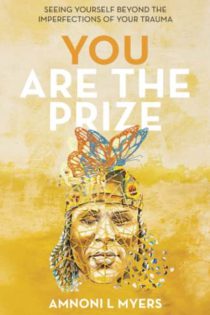
I was blessed with the community. Knowing that the importance of community is how you thrive has been something that I have known and been able to experience. The importance of interdependence, knowing that we can lean on each other for support, is something that many of us are learning. Many of us have not been able to experience, witness or see.
People fear interdependence because there is a vulnerability that goes with it. Oftentimes, people are reluctant to do it because they don’t want to get hurt.
In some ways, in my experience, being able to understand pain at such a young age allowed me to navigate through it. Not adapt to it but to be able to adapt to the surroundings that I’m in and thrive in those ways. Pain has given me insight into the things I don’t want to experience. There are times where sometimes they say, “Don’t put your hand on a hot stove.” Sometimes we do it because we want to see for ourselves. I have been that person. I have learned that it is okay to learn and hear from other person’s wisdom because it may allow you to experience something on the other side. That is how I try to live my life.
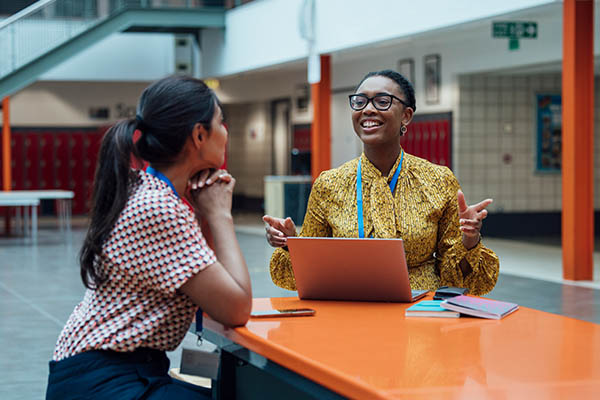
The other observation I would say is you have a particularly strong sense of self. Through the challenges and successes, you know yourself. When you know yourself, it is a lot easier to navigate life. There are many people out there that could be in not just their twenties when people are trying to figure out who they are. In their 30s, 40s and 50s, they still don’t know who they are. It is hard to navigate a world like that. You Are The Prize, I love that name for the book. Talk about why did you choose that name? What does that name mean? What does that mean to you? How did you choose it?
I cannot believe I’m holding the actual book. It is interesting to go from a writing group to writing a manuscript and it is all on Google Docs. All of a sudden, you have the actual book in your hand.
I have a book that came out. I know the feeling. The first time I walked into a Barnes & Noble, I saw my book and I started crying.
Congratulations. That is exciting.
Talk about You Are The Prize.
It is a memoir. The title came from my little sister. She said to me one day, “Always remember that you are the prize.” When she said that to me, it was when I was going through my coming out experience I remember experiencing my first heartbreak. She was my hype man, cheerleader and confidence booster. I was like, “What better way to honor her life and her legacy than by naming the book after something that she has told me?”
I experienced the loss of her when I went into the foster care system. To have that piece of her to be like, “You are the prize,” I was thinking about my life journey. That was something I didn’t get to experience. I didn’t get to experience myself as the prize. When I thought back to my writing process, thinking back on my stories and the things that I’ve experienced, I said, “Life may have told me that I was born in shambles and have been born through all of these different adversities.”
What it has ignored to share with me is that I was also born whole. Everyone is born whole. That is a prize within itself. I had to recognize that even though I experienced difficult things, at the core of it, I am still the prize. That is something I wanted to share in my book with other young people because when you are being taken away and removed, you lose your self-worth and sense of self. There is a lot of confusion because you begin to blame yourself.
Everyone is born whole. That is a prize within itself.
The adults in your life are not explaining to you why it is you are in the position that you are in. They don’t take the time to say to you, “It is not your fault.” With that, you take on all of that blame and you begin to realize, “I’m a burden. I don’t know why I belong here.” It was me coming back to myself. I’m not saying that it is perfect but it is to say that I remind myself every day that I am the prize. This book holds me accountable because, when people see me, they say, “Amnoni, you are the prize.”
You have gotten some feedback about the book. What things have you been hearing from people? How meaningful is that?
It was difficult getting the book out. I was nervous. I had a lot of Imposter syndrome around it. I wasn’t sure if it was going to be good. I wasn’t sure if I had been too vulnerable. I was nervous about my family. That was what I was first nervous about. Getting feedback from my family has been amazing. For them to be able to acknowledge what I experienced, how far I have come and the strong lineage that I came from was super impactful. I’m hearing it from professors, teachers and people who have also lived through foster care come up to me and say, “Amnoni, your story is amazing. This has been beautifully written.”
I saw my hard cover for the first time. Dr. Nichols from the American Pediatrics Association moderated a panel that I was on. He bought my hardcover. It was the first time that I had ever seen the hardcover. Just like you, when you saw your book at Barnes & Noble, I felt this overwhelming feeling come up inside of me because it was like, “Not only is my book being released to people who need it and who want to see it thrive but to have someone like Dr. Nichols holding my book felt amazing.”
You know how many people are going to read and be impacted by it. When did the book come out?
The book came out in January 2022.
You Are The Prize is one action that people could take to learn more about the foster care system. I urge all of our readers to do that. Any other last suggestions you would give for our readers to assist or learn more about foster care? It is a black box for many people. Is there anything we can or should be doing?
May is National Foster Care Month. It is around education, advocacy and bringing to light the experiences, challenges and wins we have experienced with moving child welfare policy forward. In your local communities, it is important to do your homework and research to learn more. The thing about it is that many people say, “I can’t foster, adopt or do any of those things.” Those are the things I would urge you to think through and say, “If you can’t do it, that is okay but you can also learn about it.”
You can think about even some Meetup groups that incorporate young people that are in the foster care system, aging out or have been transitioned out because we are a population that gets looked over and that gets silenced. A lot of times, it is hard for us to find community within those communities. It is important to be aware and bring awareness.
I would love for people to check out my books. It is a good resource. It brings a good understanding for somebody who doesn’t know what the child welfare system is like for you to pass that on to another young person, an agency or an organization. My book is at four universities. I would like to get my book out into more spaces in the world because there is a lot of work that still needs to be done around this system and we can’t do it alone.
Everyone gains from those stories. It is not just people and fosters. All adults can gain from the messages in the book about community and safe spaces. I did tell our readers that they would be motivated. I have as reader number one. Here are rapid-fire questions with rapid-fire quick answers. Here we go. The first time you saw yourself as a leader.
It is when I was introducing First Lady Michelle Obama at the White House in front of not just staff but a generation of kids.
How nervous were you?
I was extremely nervous. I had to meet her before I went on. It helped ease off a lot of the nerves. She is super incredible. It is one of the best days of my life.
If you could access a time machine and go anywhere in the world at any point in time, where and when do you think you would go?
I would go to heaven to connect with my little sister and great-aunt to be able to see them, hear them again, get some perspective from them and be able to hug them. I can continue to hug the world.
Name one thing on your bucket list that you have not done and that you still would love to be able to do.
I want to go to Bali. I have not been able to do that yet.
Last question, how do you most want to be remembered?
I want to be remembered for my hugs and the way that I embrace people. I hear that I give good hugs. Part of that is because I have been able to receive good hugs. I want people to remember the impact that I have been able to make on their life. By doing so, it has been with the hugs and the words of encouragement and support I have given them.
If I get to head out to Tulsa, Oklahoma, will I get a big hug?
You will get a big hug.
Thank you for being who you are and for being the prize. Thank you for helping everyone and our readers to understand that every single person is a prize. There is this concept I read about once, which is if you save one person, you save the world. You represent that in terms of the number of people that you are helping and saving. I wanted to thank you for being such a loyal Meetup member. Most importantly, thank you for being such a loyal member of the human race. We appreciate you being on the show. Thank you.
Thank you so much, David, for having me. I appreciate you. Keep changing the world.
—
Thanks for reading this extremely special episode. You are the prize. Every reader is the prize. There are so many important messages throughout this episode that I hope that every person here is able to internalize for focus on the importance of interdependency, creating safe spaces, people understanding their greatness and people remembering where they came from. There are so many other key messages. If you enjoy this episode, please subscribe, leave a review and remember, let’s keep connected because life is better together.
Important Links
Last modified on May 10, 2023

